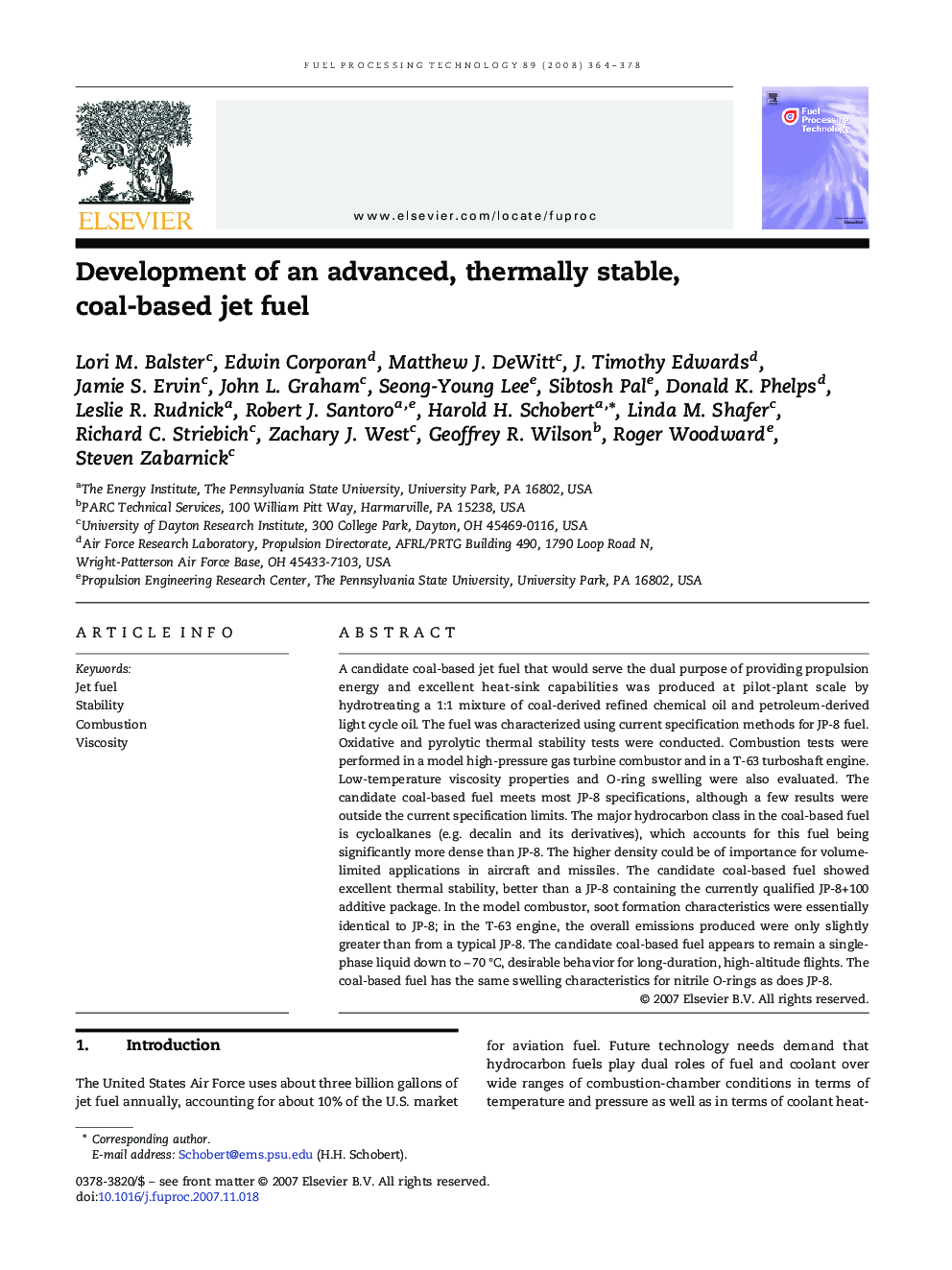| Article ID | Journal | Published Year | Pages | File Type |
|---|---|---|---|---|
| 211555 | Fuel Processing Technology | 2008 | 15 Pages |
A candidate coal-based jet fuel that would serve the dual purpose of providing propulsion energy and excellent heat-sink capabilities was produced at pilot-plant scale by hydrotreating a 1:1 mixture of coal-derived refined chemical oil and petroleum-derived light cycle oil. The fuel was characterized using current specification methods for JP-8 fuel. Oxidative and pyrolytic thermal stability tests were conducted. Combustion tests were performed in a model high-pressure gas turbine combustor and in a T-63 turboshaft engine. Low-temperature viscosity properties and O-ring swelling were also evaluated. The candidate coal-based fuel meets most JP-8 specifications, although a few results were outside the current specification limits. The major hydrocarbon class in the coal-based fuel is cycloalkanes (e.g. decalin and its derivatives), which accounts for this fuel being significantly more dense than JP-8. The higher density could be of importance for volume-limited applications in aircraft and missiles. The candidate coal-based fuel showed excellent thermal stability, better than a JP-8 containing the currently qualified JP-8+100 additive package. In the model combustor, soot formation characteristics were essentially identical to JP-8; in the T-63 engine, the overall emissions produced were only slightly greater than from a typical JP-8. The candidate coal-based fuel appears to remain a single-phase liquid down to − 70 °C, desirable behavior for long-duration, high-altitude flights. The coal-based fuel has the same swelling characteristics for nitrile O-rings as does JP-8.
